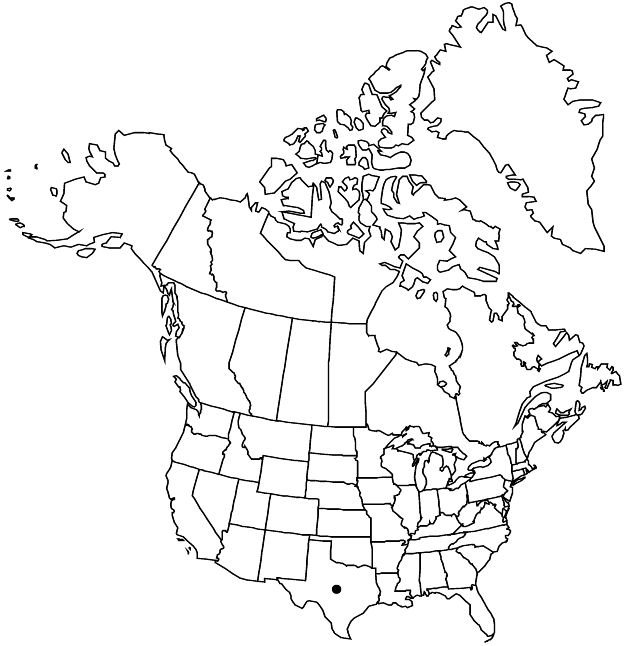Difference between revisions of "Hibiscus martianus"
Linnaea 24: 193. 1851.
FNA>Volume Importer |
imported>Volume Importer |
||
| (5 intermediate revisions by 2 users not shown) | |||
| Line 12: | Line 12: | ||
|name=Hibiscus cardiophyllus | |name=Hibiscus cardiophyllus | ||
|authority=A. Gray | |authority=A. Gray | ||
| + | |rank=species | ||
}} | }} | ||
|hierarchy=Malvaceae;Malvaceae subfam. Malvoideae;Hibiscus;Hibiscus martianus | |hierarchy=Malvaceae;Malvaceae subfam. Malvoideae;Hibiscus;Hibiscus martianus | ||
| Line 36: | Line 37: | ||
-->{{#Taxon: | -->{{#Taxon: | ||
name=Hibiscus martianus | name=Hibiscus martianus | ||
| − | |||
|authority=Zuccarini | |authority=Zuccarini | ||
|rank=species | |rank=species | ||
| Line 51: | Line 51: | ||
|publication year=1851 | |publication year=1851 | ||
|special status= | |special status= | ||
| − | |source xml=https:// | + | |source xml=https://bitbucket.org/aafc-mbb/fna-data-curation/src/2e0870ddd59836b60bcf96646a41e87ea5a5943a/coarse_grained_fna_xml/V6/V6_465.xml |
|subfamily=Malvaceae subfam. Malvoideae | |subfamily=Malvaceae subfam. Malvoideae | ||
|genus=Hibiscus | |genus=Hibiscus | ||
Latest revision as of 22:21, 5 November 2020
Subshrubs, to 1.5 m, herbage stellate-tomentose throughout, lines of fine curved hairs absent or obscured. Stems: older twigs gray, glabrescent. Leaves: stipules linear-lanceolate, (2–)3–7(–10) mm; petiole subequal to blade, adaxial fine curved hairs absent or obscured; blade markedly discolorous, broadly ovate, unlobed or shallowly 3-angulate-lobate, 2–8 × 2–8.5 cm, base cordate, margins irregularly dentate or dentate-serrate, apex broadly acute to rounded, surfaces densely tomentose abaxially, less so adaxially, inconspicuous nectary abaxially on midvein near base. Inflorescences solitary flowers in axils of distal leaves. Pedicels jointed below apices, 4–10 cm, exceeding subtending petioles, elongating in fruit; involucellar bractlets (7 or)8–10, narrowly rhombic-elliptic, 1.2–2(–2.4) cm, enlarging in fruit, margins not or inconspicuously ciliate. Flowers horizontal or ascending; calyx rotate to campanulate, lobed nearly to base, 1.4–2.4(–2.7) cm, larger in fruit, lobes narrowly triangular-ovate, apices acute to short-acuminate, nectaries absent; corolla rotate to campanulate, petals bright red, asymmetrically obovate, 1.5–3 × 0.9–2.1 cm, margins ± entire, sometimes undulate, finely hairy abaxially where exposed in bud; staminal column somewhat declinate, bright red, 0.9–1.4 cm, bearing filaments throughout, free portion of filaments secund, 1–5 mm; pollen yellow-orange; styles red, 2–7 mm; stigmas red. Capsules yellowish brown, ovoid, 1.2–2 cm, apex apiculate, glabrous or with minute hairs near apex and on sutures. Seeds dark brown, angulately reniform-ovoid, 3–4 mm, stellate-hairy throughout. 2n = 22 (Mexico: Nuevo León).
Phenology: Flowering year-round.
Habitat: Dry, often rocky thorn-scrub and open woodlands
Elevation: 10–800 m
Distribution

Tex., Mexico (Chihuahua, Coahuila, Hidalgo, Nuevo León, Puebla, San Luis Potosí, Tamaulipas).
Discussion
In Texas, Hibiscus martianus occurs from the Big Bend region to the southernmost Gulf Coast, mostly in counties bordering or near the Rio Grande.
Selected References
None.